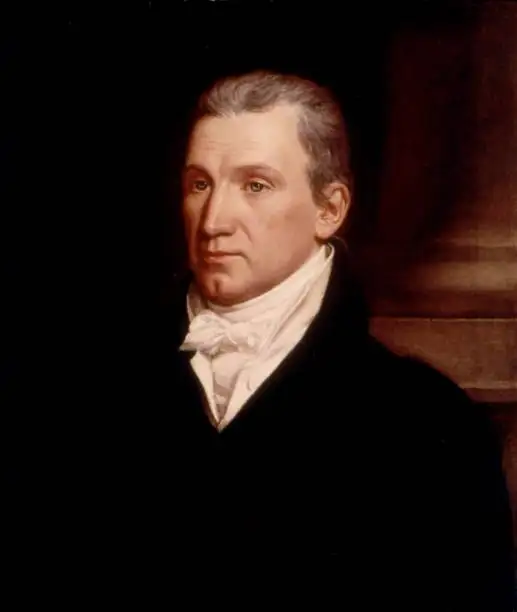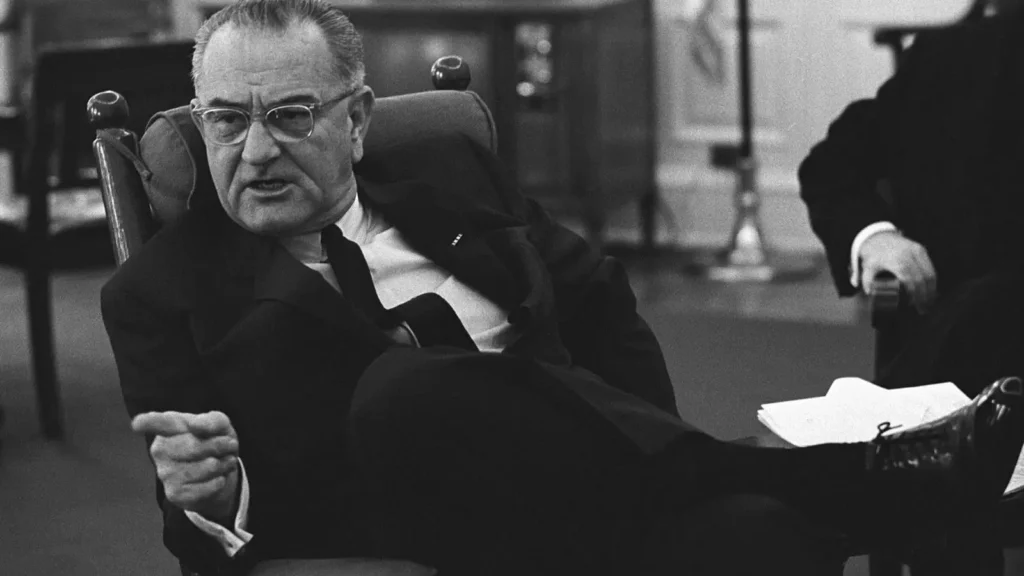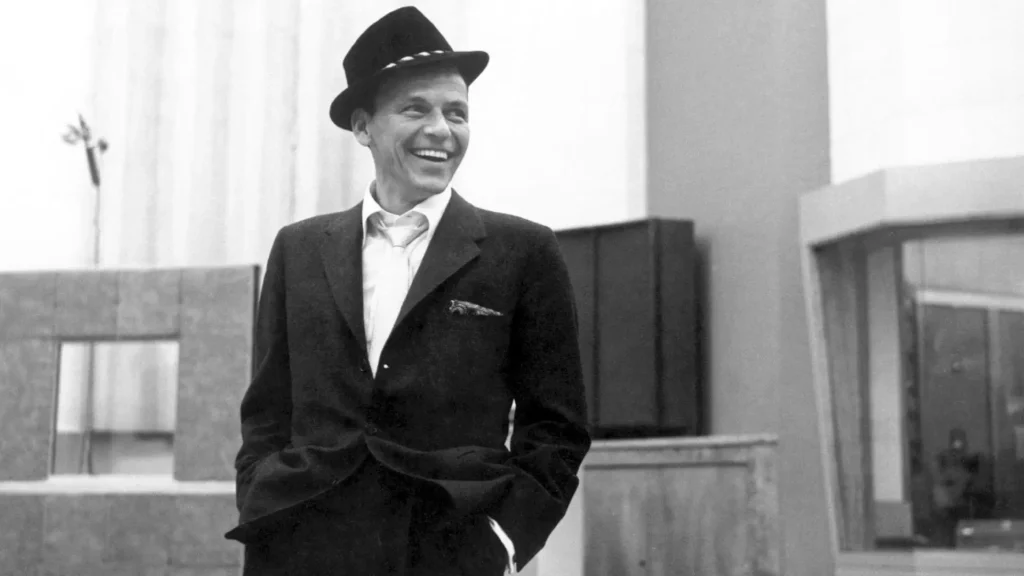The ESTJ personality type, often referred to as “The Executive,” is one of the most structured, reliable, and goal-oriented types in the Myers-Briggs® Type Indicator (MBTI) framework.
People with the ESTJ personality type are known for their unwavering commitment to order, efficiency, and tradition.
They excel in leadership roles, naturally stepping up to organize, delegate, and ensure tasks are accomplished effectively. Whether managing a team at work, leading a family, or overseeing a community project, ESTJs are the individuals who ensure everything runs like clockwork.
ESTJs thrive in environments where rules and expectations are clear.
They are highly dependable, practical, and grounded in reality, which makes them invaluable in personal and professional settings alike.
Known for their strong sense of responsibility and dedication, they are natural role models for others to follow.
However, like any personality type, the ESTJ personality type also comes with challenges that can limit their growth if left unchecked.
In this blog, we’ll explore the defining characteristics, strengths, challenges, and tendencies of the ESTJ personality type.
Whether you are an ESTJ seeking to understand yourself better, a colleague or friend of an ESTJ, or simply curious about personality types, this guide will provide an in-depth understanding of what makes ESTJs exceptional and how they can balance their strengths for greater success.
Table of Contents
Understanding the ESTJ Personality Type
The ESTJ personality type is a cornerstone of stability and structure within the MBTI framework.
ESTJs are individuals who crave order and consistency in all aspects of life, from their work environment to their personal relationships.
They are grounded in reality, focusing on practical solutions rather than abstract ideas or unproven theories.
ESTJs excel at taking charge and ensuring that projects, processes, and people align with established goals.
One of the most striking traits of ESTJs is their confidence and decisiveness.
They are unafraid to make tough decisions, especially when they believe it serves the greater good.
Their direct and assertive communication style leaves little room for ambiguity, making them highly effective in leadership roles.
However, their preference for clear hierarchies and traditional systems can sometimes make them resistant to change or unconventional ideas.
At their core, ESTJs are driven by a sense of duty.
They take pride in upholding traditions, maintaining order, and ensuring that everyone fulfills their responsibilities.
This makes them highly respected within their communities and professional circles.
However, understanding the ESTJ personality type also involves acknowledging their potential challenges, such as a tendency to prioritize work over personal connections or an over-reliance on rules that may stifle creativity.
What Does ESTJ Stand For?
The acronym ESTJ stands for Extraverted, Sensing, Thinking, and Judging, which represent the four key preferences that define this personality type:
- Extraverted (E): ESTJs are energized by interaction with others. They thrive in social settings and are often the ones leading conversations or organizing group activities.
- Sensing (S): ESTJs rely on tangible facts and concrete data when making decisions. They focus on the here and now, emphasizing practicality over abstract theories.
- Thinking (T): Logical and analytical, ESTJs base their decisions on reason and objective criteria rather than emotions. They are driven by efficiency and fairness.
- Judging (J): ESTJs prefer structure, organization, and clear plans. They value predictability and excel at creating systems that ensure tasks are completed effectively.
These preferences combine to create a personality that is action-oriented, methodical, and highly effective at leading and organizing.
The ESTJ personality type thrives in environments that reward hard work, discipline, and adherence to rules.
The Executive: A Brief Overview

Often referred to as “The Executive,” the ESTJ personality type is the epitome of leadership and accountability.
ESTJs are natural organizers who excel at creating order from chaos.
Their ability to plan, delegate, and enforce rules makes them indispensable in professional and personal contexts.
Whether managing a business, running a household, or leading a community initiative, ESTJs approach every task with a sense of duty and determination.
The Executive nickname is well-earned, as ESTJs are often drawn to roles of authority.
They have a strong belief in their ability to guide others and ensure the success of any endeavor they undertake.
Their leadership style is characterized by a no-nonsense approach: they value efficiency, demand high standards, and expect others to follow through on their commitments.
ESTJs are also deeply rooted in tradition.
They respect established systems and often look to the past for guidance on how to handle present challenges.
This respect for tradition makes them excellent stewards of cultural and organizational heritage.
However, their reliance on conventional methods can sometimes limit their openness to innovative ideas or unconventional solutions.
Despite their firm exterior, ESTJs are deeply loyal to their loved ones and take their responsibilities as friends, partners, and family members seriously.
They are often the glue that holds relationships and groups together, ensuring that everyone feels supported and that shared goals are achieved.
Core Traits of the ESTJ Personality Type
The ESTJ personality type is defined by a set of core traits that emphasize structure, responsibility, and practicality.
These traits form the foundation of how ESTJs think, behave, and interact with the world around them.
Here’s an expanded look at the defining characteristics of the ESTJ personality type:
1. Natural Leadership

ESTJs are born leaders.
They thrive in positions of authority where they can take charge, organize, and delegate tasks to achieve desired results.
Their confidence and decisiveness make them effective in guiding teams, solving problems, and ensuring goals are met.
ESTJs approach leadership with a sense of responsibility and believe in leading by example, earning respect through their hard work and dedication.
2. Respect for Tradition and Rules

One of the most notable traits of the ESTJ personality type is their deep respect for tradition and established systems.
ESTJs value consistency, predictability, and adherence to rules, which they believe are essential for maintaining order.
Whether it’s preserving family traditions or upholding company policies, they take pride in maintaining the structures that have proven effective over time.
3. Practical and Results-Oriented

ESTJs have little patience for abstract theories or untested ideas.
They prefer to focus on what is tangible, practical, and achievable.
They are highly results-driven, prioritizing efficiency and effectiveness in everything they do.
ESTJs excel at breaking down complex problems into manageable steps and ensuring that each task is executed with precision and purpose.
4. Highly Organized and Structured

Organization is second nature to ESTJs.
They excel at creating order out of chaos, whether in their personal lives or professional environments.
They value clear plans, well-defined roles, and detailed schedules to ensure everything runs smoothly.
This preference for structure helps ESTJs stay on top of their responsibilities and achieve their goals in a systematic manner.
5. Logical and Analytical Thinkers

ESTJs rely on logic and objectivity to make decisions.
They assess situations based on facts and evidence, avoiding emotional bias or subjective reasoning.
Their analytical mindset allows them to evaluate situations critically and implement solutions that are both practical and effective.
This logical approach ensures that ESTJs remain grounded and focused, even in high-pressure scenarios.
These core traits make the ESTJ personality type a pillar of strength and reliability.
Their ability to lead, organize, and execute with precision sets them apart as effective contributors to any team, organization, or community.
By leveraging these traits, ESTJs excel in roles that require structure, dependability, and decisive action, making them invaluable in both personal and professional settings.
Strengths of the ESTJ Personality Type
The ESTJ personality type is celebrated for its reliability, practicality, and strong leadership qualities.
These strengths make them invaluable in both personal and professional settings.
Let’s take an expanded look at the key strengths that define the ESTJ personality type.
1. Reliability and Dependability

If an ESTJ commits to something, you can count on them to follow through.
They take their responsibilities seriously and pride themselves on being reliable and trustworthy.
Whether it’s meeting deadlines at work, supporting a friend in need, or fulfilling family obligations, ESTJs deliver on their promises.
This dependability makes them invaluable to those around them.
2. Strong Sense of Responsibility

A strong sense of duty defines the ESTJ personality type.
They take pride in fulfilling their roles and obligations, whether as leaders, team members, family members, or community contributors.
ESTJs are highly motivated to ensure that everything they undertake is done correctly and to the best of their ability.
Their commitment to responsibility often inspires others to follow their example and take their own duties seriously.
3. Focus on Efficiency and Productivity

ESTJs are results-driven individuals who prioritize efficiency and productivity in everything they do.
They have little patience for wasted time or resources and are always looking for ways to streamline processes and achieve better results.
Their ability to focus on what matters most allows them to accomplish their goals quickly and effectively, often exceeding expectations.
4. Confidence and Assertiveness

ESTJs exude confidence in their abilities and decisions.
They trust their judgment and are not afraid to take charge in situations that require leadership or direction.
Their assertiveness ensures that they are heard and respected, and they are often sought after for their clear-headed advice and guidance.
This confidence allows ESTJs to navigate challenges with ease and inspire others to follow their lead.
5. Clear and Direct Communication

Communication is one of the ESTJ personality type’s greatest strengths.
They are clear, concise, and direct in their interactions, ensuring that there is no ambiguity in their message.
This trait is particularly valuable in leadership and team settings, where clarity is essential for effective collaboration and achieving goals.
ESTJs are also skilled at mediating conflicts and resolving misunderstandings with their straightforward approach.
These strengths make the ESTJ personality type a cornerstone in any group, team, or community.
Their ability to lead with confidence, organize with precision, and execute with reliability ensures that they excel in roles that require structure, responsibility, and action.
By leveraging these strengths, ESTJs can create a lasting positive impact in every aspect of their lives.
Weaknesses of the ESTJ Personality Type
While the ESTJ personality type is renowned for its leadership, structure, and reliability, these same traits can sometimes manifest as challenges in certain situations.
Let’s explore the key weaknesses that ESTJs may encounter and how these can impact their personal and professional lives.
1. Overly Rigid and Stubborn

ESTJs place great value on rules, traditions, and systems, which can sometimes make them resistant to change or alternative perspectives.
Their strong adherence to structure may lead them to dismiss innovative ideas or unconventional methods, even when these could be beneficial.
This rigidity can make it challenging for ESTJs to adapt in dynamic or creative environments and may frustrate those who value flexibility and open-mindedness.
2. Tendency to Be Controlling

As natural leaders, ESTJs often feel the need to take charge in group settings.
However, this tendency can come across as controlling or domineering, especially when they impose their preferences or methods on others.
Their desire for efficiency and order may lead them to micromanage or overlook the autonomy of their peers, which can create tension in relationships or teams.
3. Difficulty in Expressing Emotions

ESTJs are highly practical and task-oriented, which can sometimes result in a lack of focus on emotional expression or empathy.
They may struggle to acknowledge or address their own feelings or the emotions of others, prioritizing logic and results over interpersonal sensitivity.
This can make them seem distant or unsupportive, especially in emotionally charged situations.
4. Impatience with Others

ESTJs have high standards for themselves and others, which can make them impatient with individuals who don’t meet their expectations or work at their pace.
They may come across as critical or dismissive when dealing with those who are less organized, decisive, or efficient.
This impatience can strain relationships and hinder collaboration in diverse teams.
5. Focus on Rules Over Creativity

While their respect for rules and traditions is a strength, ESTJs may struggle to embrace creativity or think outside the box.
They tend to prefer tried-and-true methods over experimental approaches, which can limit their ability to innovate or adapt to rapidly changing circumstances.
This focus on rules can also make them less tolerant of individuals who operate outside of conventional norms.
While these weaknesses can present challenges, they also offer opportunities for growth.
By recognizing and addressing these areas, ESTJs can enhance their relationships, broaden their perspectives, and develop a more balanced approach to life.
15 Words that Best Describe the ESTJ Personality Type
Organized
Responsible
Efficient
Pragmatic
Decisive
Traditional
Assertive
Disciplined
Logical
Authoritative
Strategic
Dependable
Detail-Oriented
Energetic
Objective
Cognitive Functions of the ESTJ Personality Type
The following table displays the whole cognitive function stack for the ESTJ personality type.
| SL No. | Roles | Cognitive Functions |
| 1. | Dominant/Hero/Heroine/Leading | Extraverted Thinking (Te) |
| 2. | Auxiliary/Good Parent/Supportive | Introverted Sensing (Si) |
| 3. | Tertiary/ Relief/ Eternal Child | Extraverted Intuition (Ne) |
| 4. | Inferior/Aspirational/Anima or Animus | Introverted Feeling (Fi) |
| 5. | Opposing/Villian/Backup | Introverted Thinking (Ti) |
| 6. | Critical Parent/Witch/Senex/Discovery | Extraverted Sensing (Se) |
| 7. | Trickster/Blind/Deceiving/Comedic | Introverted Intuition (Ni) |
| 8. | Demon/Devilish/Angelic/Transformative | Extraverted Feeling (Fe) |
Key Communication Traits of the ESTJ Personality Type

1. Direct and Clear
The ESTJ personality type is known for a no-nonsense communication style.
They prefer getting straight to the point, avoiding unnecessary embellishments or fluff. Whether discussing tasks, setting expectations, or giving feedback, ESTJs ensure their message is clear, concise, and leaves no room for misinterpretation.
Their straightforwardness makes them effective communicators in professional and personal settings alike.
2. Assertive and Confident
ESTJs possess a natural confidence that shines through in their communication.
When they speak, they do so with authority and conviction, often taking the lead in discussions.
This assertive trait ensures that their ideas are heard and respected, making them excellent in roles where leadership and clear direction are required.
The ESTJ personality type thrives in environments where their confident voice can steer decisions and inspire others.
3. Detail-Oriented
Attention to detail is a hallmark of the ESTJ personality type, and this is reflected in their communication.
When explaining ideas or giving instructions, ESTJs include specific details to ensure precision and accuracy.
They dislike ambiguity and often double-check facts before engaging in discussions, ensuring their communication is both factual and practical.
This detail-oriented approach makes them reliable and trusted collaborators.
4. Task-Focused
For the ESTJ personality type, communication often revolves around accomplishing goals and solving problems.
They value practicality and prefer discussions that lead to actionable outcomes.
Conversations with ESTJs are typically result-driven, as they aim to move quickly from identifying challenges to implementing effective solutions.
Their task-focused nature makes them efficient communicators, especially in work-related scenarios.
5. Structured and Logical
The ESTJ personality type approaches communication with a structured and logical mindset.
They organize their thoughts clearly, presenting ideas in a sequential manner that is easy to understand and follow.
Their reliance on logic ensures that their arguments are well-founded, making them persuasive and dependable in debates or negotiations.
6. Impatient with Ambiguity
Ambiguity is frustrating for the ESTJ personality type.
They prefer clear and concise information that leads to practical outcomes, finding abstract or overly theoretical discussions unproductive.
ESTJs excel when given concrete data or actionable insights, and they expect the same level of clarity from others.
Their impatience with vagueness often drives them to take charge of conversations to bring them back on track.
7. Encouraging in Leadership Roles
As natural leaders, the ESTJ personality type uses their communication skills to motivate and guide their teams.
They are adept at giving constructive feedback, identifying areas of improvement, and praising achievements to boost morale.
Their leadership-oriented communication fosters a sense of purpose and encourages collaboration toward shared goals.
8. Strong Advocates for Tradition
Tradition and established norms hold significant value for the ESTJ personality type.
In their communication, they often reference rules, policies, or historical precedents to emphasize the importance of structure and order.
This trait ensures that their viewpoints are grounded in a practical framework, appealing to others who value stability and consistency.
9. Respectful Yet Blunt
While the ESTJ personality type values respect in communication, they are not afraid to be blunt when expressing their opinions.
Honesty and transparency are paramount to them, even if it means delivering hard truths.
Their candid nature ensures that their communication is both authentic and actionable, helping others understand exactly where they stand.
10. Focused on Outcomes
The ESTJ personality type places a high emphasis on results and outcomes in their discussions.
They steer conversations toward practical solutions, avoiding distractions or unnecessary tangents.
This results-oriented approach makes them highly effective in meetings, decision-making processes, and collaborative projects, as they ensure progress is always made.
These traits highlight the communication prowess of the ESTJ personality type, making them influential leaders, dependable colleagues, and effective problem-solvers.
Their clear, confident, and goal-driven approach ensures they excel in environments that value directness and results.
Key Learning Traits of the ESTJ Personality Type

1. Preference for Structured Learning Environments
The ESTJ personality type thrives in organized and structured learning settings.
They prefer clear objectives, step-by-step processes, and measurable outcomes.
Whether in a classroom, workshop, or training program, ESTJs perform best when they know exactly what is expected of them and how their progress will be evaluated.
2. Practical and Results-Oriented
ESTJs focus on learning information that has practical applications.
They value knowledge that can be immediately applied to solve real-world problems or achieve tangible results.
The ESTJ personality type often gravitates toward subjects or skills that enhance their efficiency and contribute to their personal or professional goals.
3. Hands-On Approach to Learning
Action-oriented by nature, the ESTJ personality type learns best through hands-on experiences.
They enjoy engaging in activities like simulations, role-playing, or practical demonstrations that allow them to apply concepts directly.
This experiential learning style helps them retain information effectively and gain confidence in their abilities.
4. Logical and Systematic Thinkers
ESTJs approach learning with a logical and methodical mindset.
They prefer to break down complex topics into smaller, manageable parts and study them in a sequential order.
Their systematic approach ensures they understand foundational concepts before moving on to more advanced material, leading to a thorough grasp of the subject.
5. Respect for Expertise and Authority
The ESTJ personality type values expertise and credible sources in their learning process.
They respect instructors, mentors, and subject matter experts who demonstrate knowledge and authority.
ESTJs are more likely to engage actively when they feel the instructor is competent and the material is backed by proven methods or evidence.
6. Preference for Traditional Learning Methods
ESTJs are often drawn to traditional learning approaches, such as lectures, textbooks, and structured curricula.
While they can adapt to new technologies or methodologies, they feel most comfortable with tried-and-true methods that align with their need for order and predictability.
7. Motivated by Achievement
For the ESTJ personality type, learning is often driven by the desire to achieve specific goals or certifications.
They are highly motivated by measurable success, such as passing exams, completing courses, or earning recognition for their efforts.
This goal-oriented nature keeps them focused and disciplined.
8. Challenge-Seeking Learners
ESTJs enjoy learning opportunities that push them to improve and test their abilities.
They are not afraid of challenging subjects or rigorous training programs, as long as the effort leads to meaningful rewards.
Their competitive streak often fuels their determination to excel in learning environments.
9. Focused on Efficiency
Efficiency is key for the ESTJ personality type in learning.
They prefer streamlined processes and dislike wasting time on overly theoretical or abstract discussions.
They want to learn quickly and effectively, prioritizing content that adds value to their goals.
10. Collaborative Yet Independent
While ESTJs are capable of working well in group learning settings, they often prefer to take charge or work independently.
They appreciate team environments where roles are clearly defined and collaboration is purposeful, but they are equally comfortable taking the initiative to accomplish tasks on their own.
These traits make the ESTJ personality type highly effective learners, particularly in structured, goal-driven environments that emphasize practical application and measurable outcomes.
Their logical, hands-on approach ensures they absorb and utilize knowledge efficiently.
Key Leadership Traits of the ESTJ Personality Type

1. Natural Organizers
ESTJs excel at creating order and structure, making them natural leaders in various settings.
They thrive in environments where they can develop efficient systems and processes to achieve goals.
Their ability to delegate tasks and establish clear expectations helps ensure that teams operate smoothly and meet objectives.
2. Decisive and Goal-Oriented
Leaders with the ESTJ personality type are decisive and action-focused.
They don’t hesitate to make tough calls or set ambitious goals.
Their confidence in their decisions often inspires trust among their team members, who rely on them to provide direction and guidance.
3. Accountable and Reliable
ESTJ leaders lead by example, holding themselves and their team accountable for results.
They are dependable and consistent, ensuring that their commitments are met.
This reliability builds credibility and fosters a sense of trust and respect within their teams.
4. Focused on Results
The ESTJ personality type prioritizes tangible outcomes over theoretical discussions.
As leaders, they focus on setting clear goals and aligning team efforts to achieve measurable results.
Their emphasis on productivity and efficiency drives teams to perform at their best.
5. Rule-Enforcers and Ethical Leaders
ESTJs value rules, traditions, and ethical standards, and they expect the same from those they lead.
They create a culture of accountability and discipline, ensuring that everyone adheres to policies and regulations.
Their strong moral compass often inspires others to act with integrity.
6. Strong Communicators
ESTJ leaders communicate clearly and assertively, ensuring that their team members understand expectations and objectives.
They excel at breaking down complex tasks into actionable steps, making it easier for teams to execute plans effectively.
7. Practical Problem-Solvers
When faced with challenges, ESTJ leaders focus on practical solutions rather than dwelling on the problem. They are quick to assess situations, identify the root cause, and implement strategies to overcome obstacles, ensuring minimal disruption to team progress.
8. Encouragers of Teamwork
Although they prefer taking charge, ESTJ leaders understand the value of collaboration.
They foster teamwork by creating an environment where everyone’s role is clearly defined and contributions are recognized.
Their ability to unite people around a common goal enhances team cohesion.
9. Resilient Under Pressure
ESTJ leaders remain composed and focused in high-pressure situations.
Their resilience and confidence help their teams stay motivated, even during challenging times.
They are adept at maintaining order and driving progress, regardless of external stressors.
10. Future-Oriented Visionaries
While rooted in practicality, ESTJ leaders also possess a forward-thinking mindset.
They plan strategically for the future, ensuring their teams are prepared for upcoming challenges and opportunities.
This balance of pragmatism and vision makes them highly effective leaders.
These traits position the ESTJ personality type as leaders who bring structure, accountability, and efficiency to any team or organization they oversee.
Key Friendship Traits of the ESTJ Personality Type

1. Dependable and Loyal
ESTJs are some of the most dependable friends you can have.
They value loyalty deeply and are committed to maintaining strong, enduring friendships.
Whether it’s showing up when needed or standing by a friend in tough times, ESTJs are reliable and trustworthy.
2. Practical Supporters
Friends with the ESTJ personality type offer practical and actionable advice.
Rather than merely providing emotional reassurance, they focus on solving problems and helping friends find tangible solutions to challenges.
Their straightforward approach makes them a go-to person for advice.
3. Planners of Activities
ESTJs often take the lead in organizing social gatherings and activities.
They enjoy planning events and ensuring that everyone has a great time.
Their attention to detail and ability to coordinate effectively often make them the backbone of their social circles.
4. Honest and Direct Communicators
ESTJ friends don’t shy away from speaking their minds.
They value honesty in friendships and are unafraid to offer constructive criticism when needed.
While their bluntness may sometimes come across as overly harsh, their intentions are rooted in helping their friends grow.
5. Encouragers of Responsibility
ESTJs hold their friends to high standards and encourage them to act responsibly.
They respect friends who are hardworking and disciplined, and they often motivate their peers to achieve their goals through persistence and determination.
6. Focused on Long-Term Connections
Friendships for ESTJs are not fleeting; they prefer meaningful, long-term connections.
They put effort into maintaining friendships and appreciate consistency from their friends.
Flakiness or unreliability is something they have little patience for.
7. Protective and Supportive
The ESTJ personality type tends to be highly protective of their friends.
They are quick to step in and defend those they care about, ensuring that their friends feel safe and supported in any situation.
8. Appreciators of Shared Interests
ESTJs enjoy friendships that are built on shared activities or common goals.
Whether it’s participating in hobbies, sports, or professional pursuits, they value spending time with friends in productive and enjoyable ways.
9. Encourage Structure in Friendships
In their relationships, ESTJs naturally bring a sense of structure and organization.
They often initiate plans, set schedules, and ensure everyone is on the same page, making it easier for groups to stay connected.
10. Valuers of Tradition
ESTJs often enjoy honoring traditions with their friends, whether it’s celebrating holidays, birthdays, or annual gatherings.
Their commitment to these rituals strengthens their friendships and creates lasting memories.
These traits make the ESTJ personality type a steadfast and supportive friend, offering reliability, honesty, and a structured approach to maintaining meaningful relationships.
Key Love & Intimacy Traits of the ESTJ Personality Type

1. Committed and Loyal Partners
ESTJs take their relationships seriously and are dedicated to their partners.
They value commitment and loyalty, working hard to build stable and enduring relationships. When ESTJs are in love, they strive to create a strong foundation for their partnership, ensuring trust and reliability.
2. Practical and Grounded Approach
In love, ESTJs show their care through practical actions rather than grand romantic gestures.
They express affection by taking responsibility, providing security, and ensuring their partner’s needs are met.
Their grounded nature often makes them dependable and reassuring partners.
3. Clear Communicators of Expectations
ESTJs value clarity and transparency in their relationships.
They openly communicate their expectations and appreciate partners who do the same.
Their direct approach ensures that misunderstandings are minimized, fostering mutual respect and understanding in the relationship.
4. Supportive of Partner’s Growth
The ESTJ personality type is naturally supportive, often encouraging their partners to pursue personal goals and ambitions.
They appreciate a partner who is equally motivated and hardworking and are happiest in relationships where both individuals grow together.
5. Valuers of Tradition in Love
ESTJs often bring a traditional perspective to love and intimacy.
They are likely to value cultural rituals, family involvement, and conventional milestones in their relationships, such as celebrating anniversaries or planning for marriage.
6. Strong Providers of Stability
ESTJs prioritize creating a stable and secure environment for their partners.
They focus on practical solutions to challenges and strive to eliminate uncertainties, making their relationships feel safe and predictable.
7. Focused on Physical and Emotional Connection
While ESTJs might not always be overly expressive with words, they value physical intimacy and enjoy expressing love through touch and shared experiences.
They work to meet both the emotional and physical needs of their partners.
8. Highly Dependable in Times of Need
ESTJs shine during tough times, stepping up to support their partners and find solutions to problems.
Their reliability and problem-solving abilities make them strong pillars of support in relationships.
9. Occasional Struggle with Emotional Vulnerability
While ESTJs are deeply caring, they can find it challenging to express their emotions openly.
They may struggle with vulnerability, often focusing on actions rather than words to show their love.
10. Seek Balance in Relationships
ESTJs thrive in relationships where responsibilities and expectations are evenly distributed.
They value teamwork and appreciate a partner who can match their dedication to making the relationship successful.
These traits make the ESTJ personality type a dependable and supportive partner, prioritizing stability, clear communication, and mutual growth in their relationships.
Suitable Careers for the ESTJ Personality Type

ESTJs, often referred to as “The Executives,” thrive in structured, organized, and goal-oriented environments.
Their strengths in leadership, decision-making, and dedication to achieving tangible results make them well-suited for careers that require planning, efficiency, and discipline.
Here are some career paths that align well with the natural abilities and traits of the ESTJ personality type:
1. Management and Leadership Roles
ESTJs excel in leadership positions due to their ability to organize teams, enforce rules, and ensure efficiency.
Roles such as operations manager, project manager, or executive director allow them to showcase their natural organizational and decision-making skills.
2. Finance and Accounting
The ESTJ personality type’s affinity for structure and attention to detail makes careers in finance and accounting ideal.
They thrive in roles such as financial analyst, accountant, or auditor, where precision and systematic processes are essential.
3. Law Enforcement and Military
ESTJs’ respect for rules, order, and discipline makes them natural fits for careers in law enforcement or the military.
Positions like police officer, military officer, or detective align with their sense of duty and strong moral code.
4. Human Resources and Administration
With their excellent organizational and interpersonal skills, ESTJs thrive in roles like HR manager, administrative officer, or compliance specialist.
These positions allow them to manage processes and maintain workplace harmony.
5. Education and Training
ESTJs are effective educators and trainers, particularly in structured settings.
Roles such as school principal, corporate trainer, or teacher enable them to combine their leadership skills with their passion for imparting knowledge.
6. Entrepreneurship and Business Ownership
Entrepreneurship appeals to the ESTJ personality type’s love for structure and results-driven work.
They can build businesses by establishing clear goals, efficient systems, and strong leadership practices, excelling in industries like retail, consulting, or logistics.
7. Government and Public Administration
ESTJs are often drawn to public service roles that allow them to enforce regulations and implement policies.
Careers in government, such as policy advisor, city manager, or public administrator, suit their methodical approach and leadership skills.
8. Engineering and Architecture
The logical and detail-oriented nature of ESTJs makes them a great fit for technical fields like engineering or architecture.
These careers provide opportunities to work on structured, goal-oriented projects.
9. Sales and Marketing Management
ESTJs’ persuasive communication and results-driven mindset allow them to excel in sales and marketing management roles.
They thrive in positions where they can create and execute strategies to achieve measurable outcomes.
10. Healthcare Administration
Healthcare administration is a perfect match for the ESTJ personality type due to its structured environment and focus on improving organizational efficiency.
Roles such as hospital administrator or healthcare manager enable ESTJs to make a tangible impact on operations.
11. Legal and Judicial Careers
ESTJs’ respect for laws and processes makes careers in the legal field a natural choice.
Positions like judge, attorney, or legal advisor align with their love for structure, fairness, and decision-making.
12. Construction Management
ESTJs are practical and hands-on, making construction management a great career option.
They can oversee projects, manage teams, and ensure everything runs on schedule and within budget.
13. Logistics and Supply Chain Management
The ESTJ personality type thrives in logistics and supply chain management roles, where planning, coordination, and efficiency are paramount.
Positions like logistics manager or procurement specialist play to their organizational strengths.
14. Banking and Investment
ESTJs’ analytical skills and ability to follow structured protocols make them excellent candidates for careers in banking and investment.
Roles like bank manager or investment advisor align well with their traits.
15. Political Leadership
With their natural charisma and ability to organize and lead, ESTJs often find fulfillment in political roles.
As elected officials or campaign managers, they can use their skills to effect change and bring order to complex systems.
These careers leverage the ESTJ personality type’s strengths in leadership, organization, and practicality, allowing them to thrive in environments that value structure, efficiency, and results.
Famous ESTJs and ESTJ Celebrities
1. Michelle Obama

As a former First Lady, Michelle Obama showcases the classic ESTJ personality traits of structure, leadership, and advocacy.
Her disciplined approach to promoting education, health, and equality reflects her natural organizational abilities.
2. John D. Rockefeller

Rockefeller, a business magnate and philanthropist, embodied the ESTJ’s traits of ambition and precision.
His structured methods and disciplined mindset made him one of the most successful entrepreneurs in history.
3. James Monroe

The fifth U.S. President, Monroe exemplified the ESTJ’s pragmatic and organized approach to leadership, effectively steering the nation through significant growth and stability during his tenure.
4. Lyndon B. Johnson

As the 36th U.S. President, Johnson demonstrated the ESTJ personality’s focus on action and order.
His ability to push through transformative legislation like the Civil Rights Act was a hallmark of his decisive leadership style.
5. Simon Cowell

A renowned television producer and music executive, Cowell’s directness, high standards, and clear decision-making showcase the ESTJ’s preference for structure and efficiency in achieving results.
6. Frank Sinatra

The iconic singer and actor, Sinatra combined the ESTJ’s love for tradition and structure with charisma and discipline, becoming a cultural icon whose influence spanned decades.
7. Billy Graham

A world-famous evangelist, Graham exemplified the ESTJ’s organizational and leadership skills by building one of the largest global ministries and inspiring millions through his disciplined approach to faith and communication.
8. Ricky Ponting

One of the most successful cricket captains, Ponting reflects the ESTJ’s dedication, strategic mindset, and ability to lead with discipline, guiding his team to numerous victories with precision.
9. Megyn Kelly

As a journalist and television host, Kelly exhibits the ESTJ’s sharp focus, strong work ethic, and direct communication skills, thriving in high-pressure environments.
10. Alec Baldwin

The award-winning actor, Baldwin represents the ESTJ’s confident and decisive nature, consistently delivering powerful performances and showcasing strong leadership in his creative endeavors.
Tips for the ESTJ Personality Type for Balance & Personal Growth

ESTJs are natural leaders known for their strong organizational skills and goal-oriented mindset.
However, their focus on efficiency and rules can sometimes lead to challenges in personal relationships, stress management, and self-care.
Here are actionable tips to help the ESTJ personality type find balance and foster personal growth:
1. Cultivate Emotional Awareness
ESTJs often prioritize logic and results over emotions. To build deeper connections with others, focus on understanding and expressing your own feelings.
Practice empathy by actively listening to others and validating their emotions without immediately jumping to solutions.
2. Learn to Delegate
Your natural leadership skills can make you feel responsible for every aspect of a project or task.
Avoid burnout by trusting others to share responsibilities. Delegating not only lightens your workload but also builds stronger, more collaborative relationships.
3. Embrace Flexibility
While you thrive in structured environments, life doesn’t always follow a set plan. Learn to adapt to unexpected changes with a positive attitude.
Flexibility can help you maintain composure and find creative solutions in unpredictable situations.
4. Prioritize Self-Care
Your drive for productivity often puts personal well-being on the back burner.
Make time for physical and mental health by incorporating regular exercise, healthy eating, and mindfulness practices into your routine.
Balance work with hobbies and activities that bring you joy.
5. Strengthen Interpersonal Relationships
Your direct and assertive communication style can sometimes come across as too blunt.
Focus on using softer language and showing appreciation for others’ contributions. Building strong, harmonious relationships can enhance your personal and professional life.
6. Practice Active Listening
As a problem-solver, you may be quick to offer solutions without fully understanding the issue.
Slow down and listen carefully before responding.
This practice shows respect for others’ perspectives and helps you build trust and rapport.
7. Set Realistic Expectations
Your high standards and perfectionism can lead to frustration when others don’t meet your expectations.
Recognize that not everyone shares your work ethic or perspective.
Setting realistic expectations can reduce stress and foster better teamwork.
8. Seek Creative Outlets
Balance your logical, structured thinking with activities that encourage creativity.
Explore hobbies like painting, writing, or music to engage your imaginative side and develop a more well-rounded personality.
9. Embrace Constructive Feedback
While you’re confident in your abilities, being open to feedback can help you grow.
View constructive criticism as an opportunity to refine your skills and gain new perspectives.
10. Balance Work and Relationships
Your strong work ethic can sometimes overshadow your personal life.
Make an effort to spend quality time with loved ones and prioritize meaningful connections.
Balancing work and relationships ensures a more fulfilling life.
11. Develop Patience
Your results-driven approach may lead to impatience with slower processes or individuals.
Practice patience by focusing on long-term goals and appreciating the gradual progress toward success.
12. Explore Personal Values
Take time to reflect on what truly matters to you beyond external achievements.
Journaling, meditation, or conversations with trusted friends can help you identify and align with your core values.
13. Celebrate Small Wins
Your focus on big-picture success can sometimes cause you to overlook smaller achievements.
Celebrate milestones, no matter how small, to maintain motivation and a positive mindset.
14. Learn to Let Go
Recognize that not everything needs to be under your control.
Practice letting go of situations or outcomes that are beyond your influence to reduce unnecessary stress and tension.
15. Seek Mentorship and Growth Opportunities
Invest in personal development by seeking mentors or attending workshops.
Surrounding yourself with diverse perspectives can broaden your understanding and help you grow as a leader and individual.
By embracing these tips, the ESTJ personality type can achieve greater balance, foster healthier relationships, and continue growing as a confident, effective, and compassionate individual.
Research Describing the ESTJ Personality Type

The ESTJ personality type is characterized by structure, discipline, and practicality.
Extensive research highlights their unique traits, preferences, and behaviors across various aspects of life, from coping with stress to career satisfaction.
Here are 10 of the most interesting research findings about the ESTJ personality type:
1. Top Scores in “Soundness” and “Efficacy”
Individuals with the ESTJ personality type rank among the top three in soundness and efficacy, showcasing their confidence and reliability when making decisions and handling responsibilities.
2. Exceptional Coping Resources
ESTJs rank first out of all 16 types in utilizing cognitive coping resources and second in emotional and social coping mechanisms, demonstrating their ability to handle stress with resilience and logic.
3. Stable Career Preferences
ESTJs report high satisfaction in work environments that prioritize clear structures, responsibilities, and teamwork.
They thrive in roles where everything is “done by the book.”
4. Strong Focus on Financial Security
Financial security is a top priority for the ESTJ personality type, with 76.0% of individuals valuing it highly.
This aligns with their pragmatic and future-oriented mindset.
5. Academic Excellence
ESTJs are among the top four types for college GPA and exhibit some of the highest retention rates, reflecting their diligence and discipline in educational pursuits.
6. Preferred Leisure Activities
ESTJs are overrepresented in “Watching sports” and “Playing sports,” indicating their preference for active and engaging pastimes that align with their energetic personality.
7. Leadership and Teamwork
In organizations, ESTJs are rated highly for their efficiency in leadership roles.
They excel at driving teams toward common goals through structure and clarity.
8. Ideal Job Features
ESTJs value stability and security in their careers above all else.
They prefer roles with clear guidelines, responsibilities, and opportunities for achievement.
9. Health Resilience
Despite being overrepresented in cases of chronic pain, ESTJs rank high in positive affectivity, suggesting their ability to maintain optimism and emotional stability under physical stress.
10. Underrepresented in Substance Abuse Programs
Reflecting their disciplined and rule-following nature, ESTJ males are one of the least represented types in substance abuse programs, emphasizing their commitment to self-control and structure.
These research insights shed light on how the ESTJ personality type navigates various domains of life with confidence, order, and purpose.
Their structured approach to challenges and strong adherence to values make them reliable leaders and contributors in any environment.
Conclusion for the ESTJ Personality Type

The ESTJ personality type, often referred to as “The Executive,” embodies a natural blend of structure, leadership, and decisiveness.
These individuals excel in organizing, planning, and achieving goals, driven by their deep respect for traditions and a clear sense of duty.
Their ability to take charge and create order in chaotic situations makes them invaluable in leadership roles, workplaces, and communities.
However, to reach their fullest potential, ESTJs benefit from balancing their strengths with self-awareness and emotional adaptability.
While their practicality and focus on results are admirable, incorporating empathy, flexibility, and self-care can help them foster deeper relationships and create a more fulfilling personal and professional life.
Whether you are an ESTJ seeking personal growth, a friend or colleague of an ESTJ, or simply someone interested in personality types, understanding the unique strengths and challenges of the ESTJ personality type provides valuable insights.
With a thoughtful approach to balance and growth, ESTJs can thrive as effective leaders, supportive partners, and inspiring role models.
If you enjoyed this post, don’t forget to check these!
ESFJ Personality Type: Best Key Traits, 8 Strengths, and Weaknesses
ISFJ Personality Type: Best Key Traits,5 Strengths and Weaknesses
ISTJ Personality Type: Best Key Traits, 8 Strengths and Weaknesses
If you found this information helpful, share it with someone who needs it. Also, let me know your thoughts below in the comment section.
